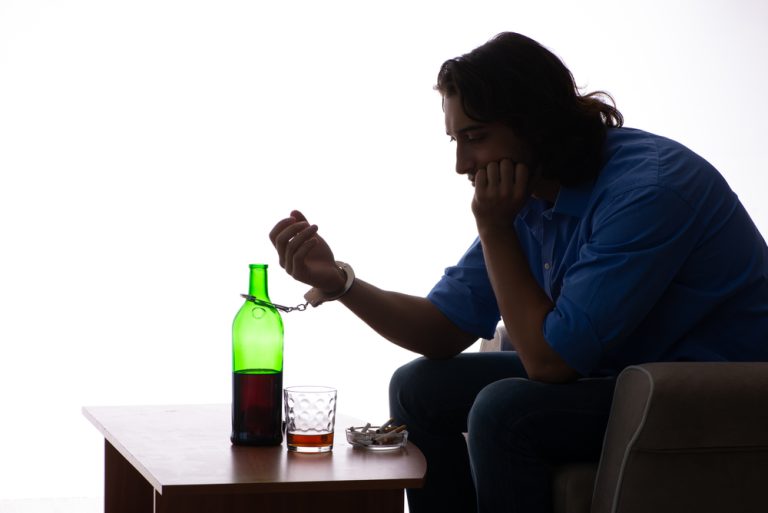For some people, one major trigger is enough to start a spiral that ends with them finishing off a bottle of gin before breakfast. Others, however, will relapse after a series of minor triggers or an extended period of stress, and even then, they’ll manage to keep their drinking to a minimum for a long time. Some will relapse very briefly – one wild night of partying will end in a few shots, but they drinking again after sobriety won’t drink again after that. Others will go through a long period of alcohol addiction again before they seek treatment and get sober once more. Look for a better alcohol rehab near Buckhannon WV, and seek help. With time, dedication, and proper support, you can reach your recovery goals and learn to manage your drinking urges even after a relapse.

Struggling with alcohol? You’re not alone.
The justifications and excuses are harmful and will soon lead the individual to drink in the manner with which he or she is most familiar. The individual will eventually, and in most cases quickly, find themselves back where they started before making the noble decision to get sober and clean up the consequences of their actions. In many cases, the individual may even find himself or herself at a deeper level of addiction after relapsing. Of course, it varies from drinker to drinker, and no expression of the disease is the same. Emotionally, remaining sober after a lifetime of alcohol abuse is hard work and brings with it new responsibilities.
Physical Changes
Myths of alcohol relapse make a recovery harder for people with alcohol use disorder. They can give you unrealistic (and often unattainable) expectations of a sober life. Often, they’ll put undue pressure on you to do things “right”, even when that’s not working for you personally. All of this can sap your motivation to stay sober and make you feel shame or guilt if you relapse. To avoid this, you should go into recovery and sobriety with your eyes wide open.
Grayson Murray’s Tragic Wake-Up Call for Pro Golf On Alcoholism, Addiction & Mental Health
- Your body has acclimated to quitting drinking over the past couple of years.
- If you or someone you know has alcohol use disorder (AUD) and has relapsed, this is a common occurrence.
While many people enjoy drinking alcohol, most people aren’t struggling with alcohol use disorder because they can control their alcohol intake. For most alcoholics, drinking in recovery quickly leads back to the same destructive cycle they worked so hard to escape. Addiction alters the brain in ways that make moderation nearly impossible, which is why lasting recovery is usually built on complete abstinence. An alcoholic who chooses not Oxford House to drink again can find a healthier, more stable, and ultimately more rewarding life.

The goal during the recovery process is to feel your best and reinvent your future without alcohol. This impressive progress can become a reality with the proper support, treatment and the desire to decline drinks in the future. These goals are achievable with the practice of abstinence, or the ability to stay completely sober during and after recovery. With the help of special supportive medications, doctors will help remove residual alcohol and its metabolites from your body. This approach reduces the painfulness of withdrawal syndrome, which former alcoholics can develop even with controlled alcohol use. Recovered alcoholics drinking again is not news, it is just part of the statistics.
Alcoholic Relapse After Long Term Sobriety: Causes and How to Get Back on Track
You might think, “Hey, I’ve shown I can stop myself from drinking, what harm can one drink do? ” However, drinking in moderation isn’t a realistic option for alcoholics. That said, there are four general stages of recovery, as compiled by addiction expert Steven M. Melemis, MD. These stages can help prevent relapse and support people to live healthier, fuller lives.
- Supportive friends and family members play a crucial role in addiction recovery, offering understanding and respect for the individual’s decision to remain sober.
- If you or a loved one is seeking a compassionate support system on the road to recovery, Hope for Tomorrow can help!
- Alcohol interacts with the reward and motivation center of the brain and with areas that regulate motor function, emotions, stress reactions, learning, and memory.
- Harmony Ridge Recovery Center provides specialized support and guidance for those facing these tough decisions.
- Our programs are designed to help individuals build a strong foundation for long-term sobriety.
- If you experienced severe withdrawal symptoms, it may be wise to avoid alcohol altogether to prevent relapse and potential health risks.
PROGRAMS
Once a person gives in to the pressure, it becomes easier to engage in drinking on a regular basis when out with others. Even one drink during sobriety can send one back into the cycle of addiction, which is difficult to escape. Losing sobriety often brings feelings of shame, guilt, and despair, which can be tempting to numb by drinking again.
- I also did not even anticipate the results I achieved doing this.
- You’re not responsible for their choices, but you can remind them they’re not alone.
- If you know that your drinking has previously hurt your health, career, or relationships, it’s best to continue to stay sober.
- But even if you weren’t drinking heavily beforehand and don’t plan to do so now, you may find that any amount of alcohol affects you differently after a monthlong break from it.

By being aware of this potential change, however, you can reframe it as a positive, Dr. Wakeman says. Now, post–Dry January, you might get the same effect from, say, one or two drinks in a sitting, which would be a win for both your health and your wallet. One of the most harmful beliefs about alcohol addiction relapse is that there is nothing you can do to stop it. Even if relapse isn’t inevitable for everyone, some people will simply relapse while others won’t. At United Recovery Project, our holistic approach to addiction treatment centers around addressing and healing the underlying issues at the root of addiction. Because alcohol is a coping mechanism, exposure to stressors and situations that are stressful can also lead to relapse.
How can I navigate social situations without alcohol?
“All I know is my relationship with the whole process of sobriety (and messing up) has changed for the better. I am deeply aware of where this can go if I let it,” she wrote. The following are helpful recovery tips that can get you through a possible relapse. As we mentioned previously, the causes of alcoholism are not well understood. Genetics, however, may be a key factor in determining whether you develop alcoholism.